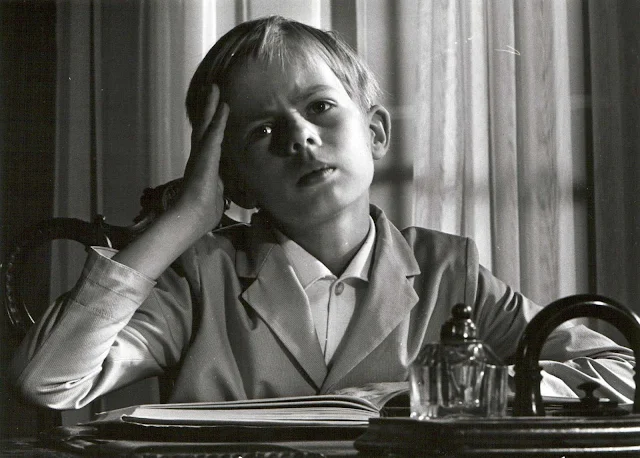.jpeg) |
| Harriet Andersson, Gio Petré, and Gunnel Lindblom in Loving Couples |
Cast: Harriet Andersson, Gunnel Lindblom, Gio Petré, Anita Björk, Gunnar Björnstrand, Eva Dahlbeck, Jan Malmsjö, Lissi Alandh, Bengt Brunskog, Anja Boman, Åke Grönberg. Heinz Hopf. Screenplay: Mai Zetterling, David Hughes, based on a novel by Agnes von Krusentjerna. Cinematography: Sven Nykvist. Production design: Jan Boleslaw. Film editing: Paul Davies. Music: Roger Wallis.
Mail Zetterling's first film as director, Loving Couples, almost collapses under the weight of exposition and subtext. It centers on three women about to give birth in a gloomy Swedish hospital in the first year of World War I. One of the women, Angela (Gio Petré), is unwed but doesn't care; another, Agda (Harriet Andersson), is married to a gay man who isn't the father, and is perfectly happy about it; the third, Adele (Gunnel Lindblom), is told that the child she's carrying, fathered by her husband, whom she doesn't love, is dead. All of them wound up in this condition on or about Midsummer's Eve on an opulent estate. The film first wanders back through their several girlhoods and then spends a good deal of time bringing us up to the day they were impregnated. The tone of the film ranges from giddy to gloomy as it explores religious bigotry, sexual freedom, societal hypocrisy, mindless militarism, and predatory behavior, among other topics. It almost flies apart at several of its narrative turns, but somehow Zetterling manages to hold it together.











